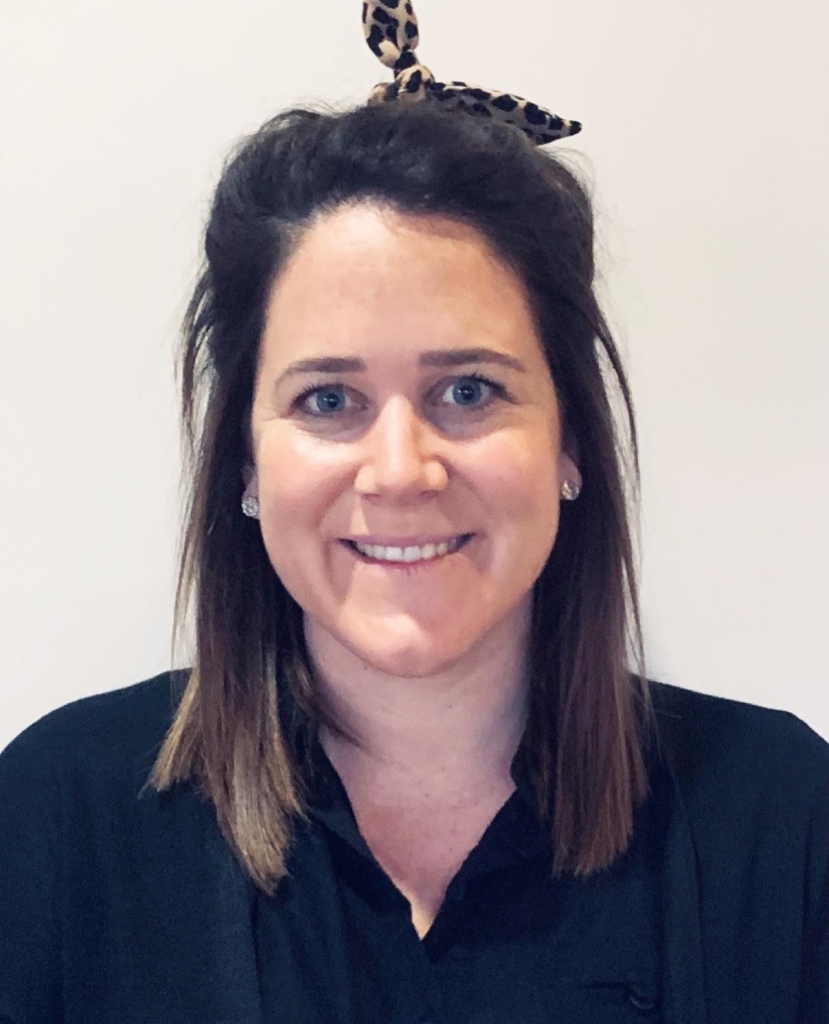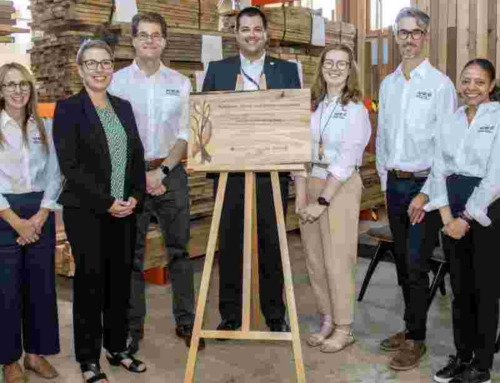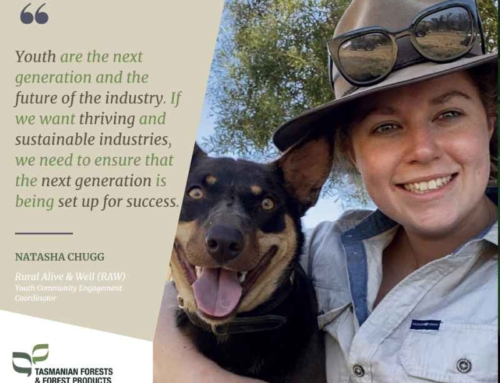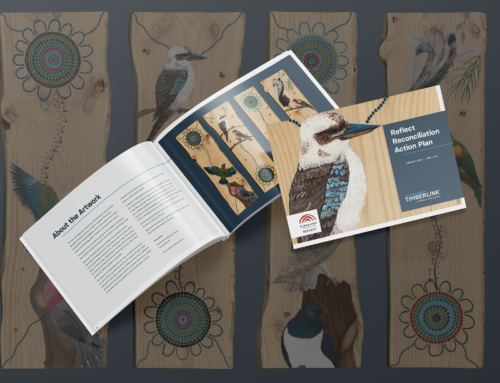Awards mentor encourages contractors to step forward
Growing up in Bridport, Lauren Carter aspired to be a teacher but after seeing that dream realised, chose to swap a career in educational leadership to support the growth of the family harvesting business.
She believes the parallels between students she used to teach and those she now works with is undeniable.
Lauren, who now resides in Scottsdale with her husband Jacob, daughter Charli and two dogs, hopes contractors—a cohort she determines to be extremely intelligent and highly adaptive—are encouraged to bring their work and achievements out of the shadows at this year’s Tasmanian Timber Awards.
Can you please describe your business and your role within it?
Our business was established in early 2018 off the back of an opportunity in Burnie. JCH Harvest is our family business which has been a product of the hard work of my partner and now Director of that business, Jacob Hughes. We currently harvest over 300,000t annually across four crews including a newly established traction assist operation in the North East.
Our business ethos has always been based around the people we work with. We pride our operations on our tight knit crews who enjoy working together daily, as well as our retention rate and our ability to provide flexible and family friendly considerations as well as operational autonomy.
After leaving my previous professional in educational leadership, I now work as part of the Management team at JCH. My official role is Business Management, HR and Compliance. Unofficially I work to ensure the boys are always provided hot sausage rolls and coffees when asked to work outside their operational preferences.
When did your interest and career in forestry begin?
The interest came from my partner working as an operator for many years. He began to express interest in becoming a contractor himself. This inspired me to assist in the building of a business and compliment his efforts with my transferable skills from my degree and establishing career. I was also always drawn to students at school who were disengaged in the rigid system. A lot of the people we work with admit to being that kid at school. They’re now highly prized mechanics, operators and drivers who form the basis of our industry. In short, I saw the overall value of the individuals in the industry, they are hands on people, who’s skills are unrivalled and should be fostered.
What are the biggest challenges facing contractors in our industry?
In the rawest of terms, the last three years has been a rollercoaster. Any business globally would have an array of issues at the moment. Commodity based markets expose our industry more severely. However, for JCH the challenges have served as lessons in how to refine practice, to develop skills and to utilise learnings for future planning.
What do you think contractors do well, but perhaps are not well-recognised for?
Contractors adapt to need continually and work avidly to fulfil expectations from an array of stakeholders working to different metrics. They maintain quality HR and skills in a fluctuating environment. They do a great job of building resilient and robust businesses while operating in close proximity for the same said works. I also think that the individuals who run these businesses are extremely intelligent in different aspects including logistics, management and technological adaptions. I don’t always feel like these skills can be fully utilised by the industry as a whole.
Why should contractors be encouraged to nominate for the upcoming Tasmanian Timber Awards?
I think a broad range of contractors in different contexts need to build the understanding of their works within the overall industry. I know within our own business and a lot of other organisations people are reluctant to highlight their own achievements. The previous awards were a huge success, and I would hope the contractor base sees this as the starting point for many more nominations and awards recognising their efforts.
Where do you think understanding of the industry could improve?
I would say there needs to be a deeper understanding of the different desired outcomes of each stakeholder, empathy and understanding of the complexities of each organisation. There are agreeable consistencies that we all want a productive, safe and relevant industry with strong markets and sustainability. There are further considerations that the industry needs to be aware of which are shelved when extrinsic pressure becomes prominent.
Women only comprise 16 per cent of the industry in Tasmania—why do you think this is, and what might be done to encourage more diversity in the sector?
After entering the industry from another, I was unaware of those entry level positions that may have been available when undertaking education. It takes a special type of personality to continually provide a monotonous service in sometimes challenging conditions, regardless of gender. From a contractor perspective we would love to train and employ females in operator roles, the reality is the percentage of interest is just not there (of course this is from an operator lens). The women that make up eight per cent of the JCH employee base provide a service unrivalled by their male counterparts and vice versa.
What is your vision for the forest and forest products industry in our state?
My vision is for a well-rounded industry that is better understood by the communities it operates in, see industry and tourism work in conjunction with each other and not be seen in isolation. To see it continually strive for diversification, providing our state with renewable and sustainable resources. To ensure understanding of external community member not directly involved in the industry and to highlight the value not always seen, nor acknowledged.
Lauren Carter has been selected as a Mentor for the 2021 Tasmanian Timber Awards.
Find out more about how to enter the Awards here.

